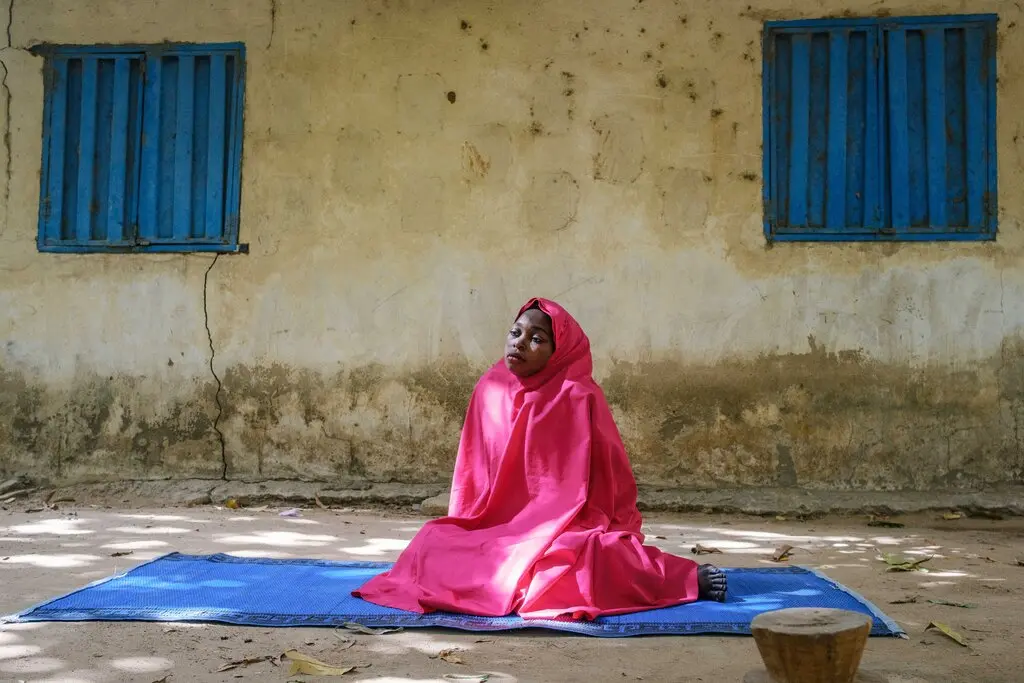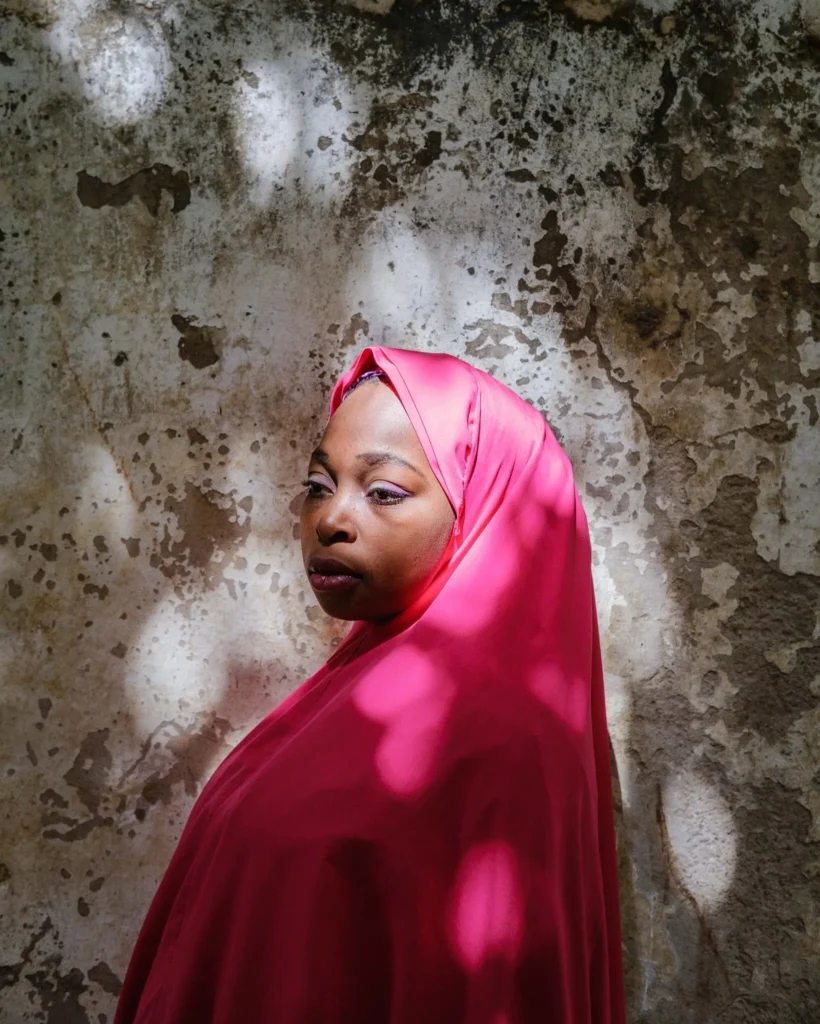April 14, 2024
Saratu Dauda found herself in a terrifying situation in 2014 when she was abducted at the age of 16. She, along with her classmates, was packed into a truck by members of the terrorist group Boko Haram, heading into the bush in northeastern Nigeria. Behind them, their girls’ boarding school in Chibok had been set ablaze.
As the truck rumbled on, Dauda noticed some of the girls jumping off the back, either alone or in pairs, seeking refuge in the surrounding scrubland. She was about to follow suit when one girl raised the alarm, alerting their captors to the escape attempts. The truck was secured, and they continued towards what would become nine long years of captivity for Dauda.
Reflecting on that pivotal moment, Dauda remarked, “If she hadn’t shouted, we would have all escaped.” This incident marked the beginning of a harrowing ordeal for Dauda and her fellow captives, whose abduction from their dormitory exactly a decade ago garnered international attention. They became known as the Chibok Girls, catapulted to fame by figures like Michelle Obama and advocates campaigning under the banner of “Bring Back Our Girls.”
“The only ‘crime’ of these girls was pursuing an education,” emphasized Allen Manasseh, a youth leader from Chibok, who has tirelessly advocated for their release.
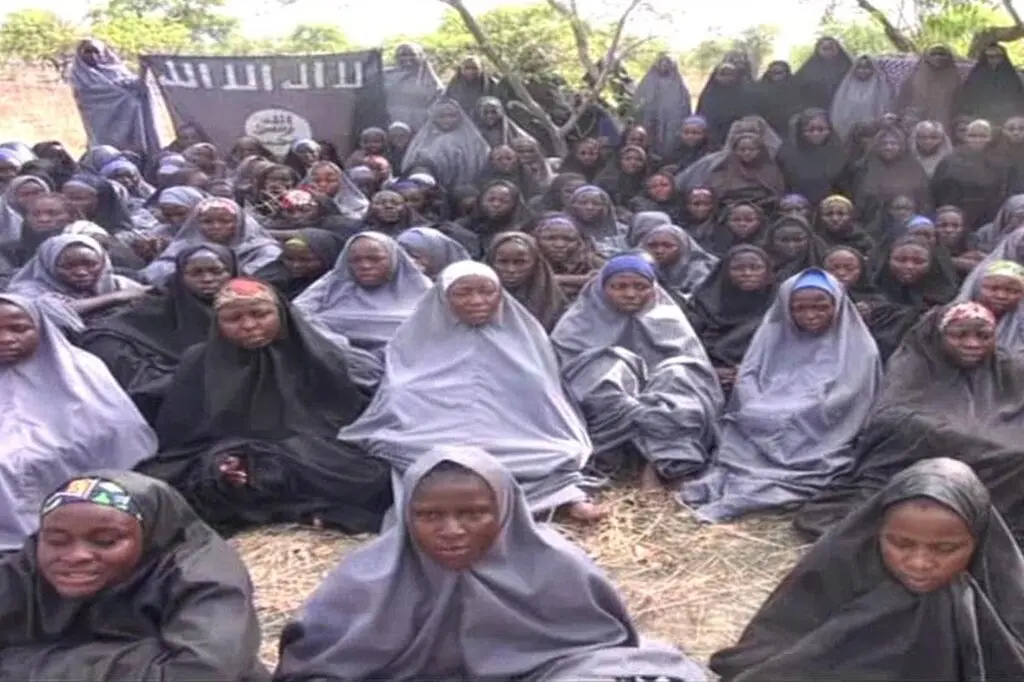
A still image from a 2014 video that showed the kidnapped Nigerian girls.Credit...via Agence France-Presse — Getty Images
Their fates have diverged dramatically since the abduction. Some managed to escape almost immediately; later, 103 were released following negotiations. A handful now reside abroad, including in the United States. However, the whereabouts of as many as 82 remain unknown, leaving the grim possibility that they may have been killed or are still being held captive.
The abduction in Chibok marked the onset of a disturbing trend in Nigeria — one that has unfortunately persisted. Kidnapping, including the mass abduction of children, has burgeoned into a lucrative enterprise across the country, driven primarily by ransom demands.
“The tragedy of Chibok continues to reverberate week after week,” remarked Pat Griffiths, a spokesperson for the International Committee of the Red Cross in Maiduguri.
The Chibok Girls symbolize just a fraction of the victims of a protracted 15-year conflict with Islamist insurgents, a crisis that, despite claiming hundreds of thousands of lives and displacing millions, has largely faded from global attention amidst other global conflicts.
According to the Red Cross, over 23,000 individuals in northeastern Nigeria are officially registered as missing, making it the organization’s second-largest caseload globally after Iraq. However, Mr. Griffiths believes this figure is a significant underrepresentation of the true scale of the crisis.
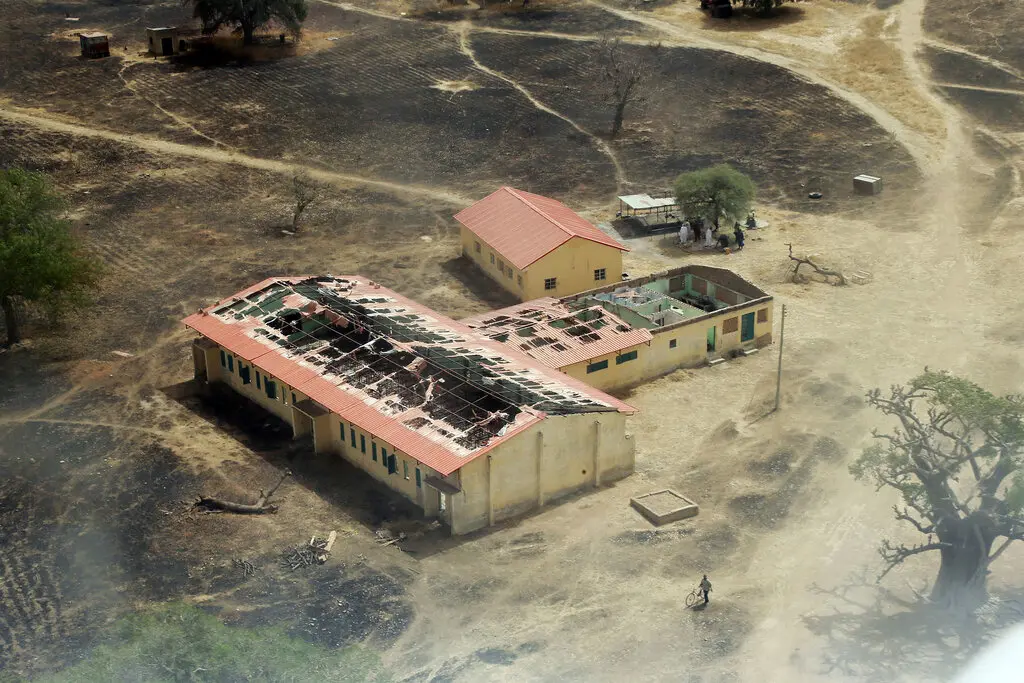
The burned-out school in Chibok, Nigeria, where Boko Haram fighters seized 276 girls. The group’s name means “Western education is forbidden.”Credit...Sunday Aghaeze/Agence France-Presse — Getty Images
Ms. Dauda said that she was a contented adolescent living in a big, loving Christian family prior to being kidnapped. She had a passion for doll play and aspired to be a fashion designer. She loved her mother and was her father’s pet.
The girls slept outside in the Sambisa forest, which was Boko Haram’s hideout, listened to a constant stream of Islamic lecturers, and fought over scarce water supplies for months after being taken prisoner, according to Ms. Dauda. She claimed that two of the girls were whipped in front of the others as they attempted to flee.
She added that after that, they had two options: get married or turn into slaves who could be called upon for sex or household chores.
Ms. Dauda made the decision to get married, became an Islamic convert, and changed her name to Aisha. A man in his late 20s who was in charge of filming Boko Haram engagements was shown to her. They wedded a few hours after they first met.
She maintained he wasn’t mean to her, but a few months later, one day he returned home to find her playing with a doll she had fashioned from clay and made an outfit for.
“You’re engaging in idol-playing? You want to put me through trouble?” she recalled him asking. She moved out of their house and stayed with another Chibok girl after becoming enraged. She claimed he divorced her after realizing she was not coming back.
She soon wed Mohamed Musa, a weapon-making welder and fellow Boko Haram fighter, and the two eventually had three kids. She claimed that while still being held captive by Abubakar Shekau, the deadly head of Boko Haram, and his goons, they had everything they needed and were surrounded by people who “cared about each other like a family,” thus she was content.
According to other escapees, the Chibok Girls received significantly better treatment than other kidnap victims.
In a recent interview, her spouse stated that Ms. Dauda declined to be a part of the group of Chibok Girls who were set free in 2017 following talks with the government.
According to Mr. Musa, “many of them refused to be taken home simply because they were afraid that they might be stigmatized” or that “their family would force them out of Islam.”
But Ms. Dauda continued to keep tabs on the Chibok pals who passed away throughout the years. Sixteen in bombings and air raids. two during labor. One as a suicide bomber who was forced to do so by Boko Haram. A snakebite story and one about illness. Observing that the majority of casualties from the air strikes were women and children, she pondered when her turn would come.

Actors including Harrison Ford, Wesley Snipes, Mel Gibson and Sylvester Stallone highlighted the students’ plight at the Cannes Film Festival in 2014.Credit...Stephane Cardinale/Corbis, via Getty Images
And things got more difficult. Ms. Dauda claimed that she and her husband found themselves on the wrong side and under suspicion when the leader of Boko Haram was killed and the group’s potent offshoot, Islamic State West Africa Province, grabbed control of the Sambisa forest. They were concerned about becoming slaves. They discussed escape in whispers late into the night. However, Ms. Dauda chose to move forward because she wanted to take action before her husband did. He told her he would follow with the kids later and wouldn’t let her take the kids.
She prepared a small package of food at three in the morning, prayed a little, and glanced at her sleeping kids’ faces. She quickly left their house. She waited beneath a tree to make sure no one had noticed her. She then spent days walking through the wilderness, stopping at each village to tell locals she was on her way to see friends. She made it a point to leave during the mosque’s morning prayer so the men would not see her departing.
Along the way, she linked up with other women who were also fleeing, and together they turned themselves in to the military in May of last year. After hearing on the radio that the Chibok Girls had gained international attention, she at last had the opportunity to witness it.
“Is this a girl from Chibok?” She recalled a soldier’s amazement at discovering who she was. “We give thanks to God.”
Many families had lost hope since the previous negotiated release, which was six years ago. Over the years, three governments have failed to bring all the girls home, and Mr. Manasseh said he has grown despondent and has largely ceased communicating with the families.
He said the word “silence.” “The government has completely failed.”
Nigerian schools have turned into a haven for kidnappers of all sorts ever since Chibok. A mere example of numerous such incidents occurred last month when several dozen, if not hundreds, of children were abducted in Kaduna State, hundreds of miles away from areas under the control of Boko Haram and its Islamic State affiliate. Just a few days prior, while searching for firewood in the northeast, hundreds of women and children were abducted.
Following her surrender, Ms. Dauda was brought to Maiduguri and registered in the government’s rehabilitation program in order to get deradicalization and therapy. A few months later, she received word that her husband and their three girls had made their way out of the country and were reunited.
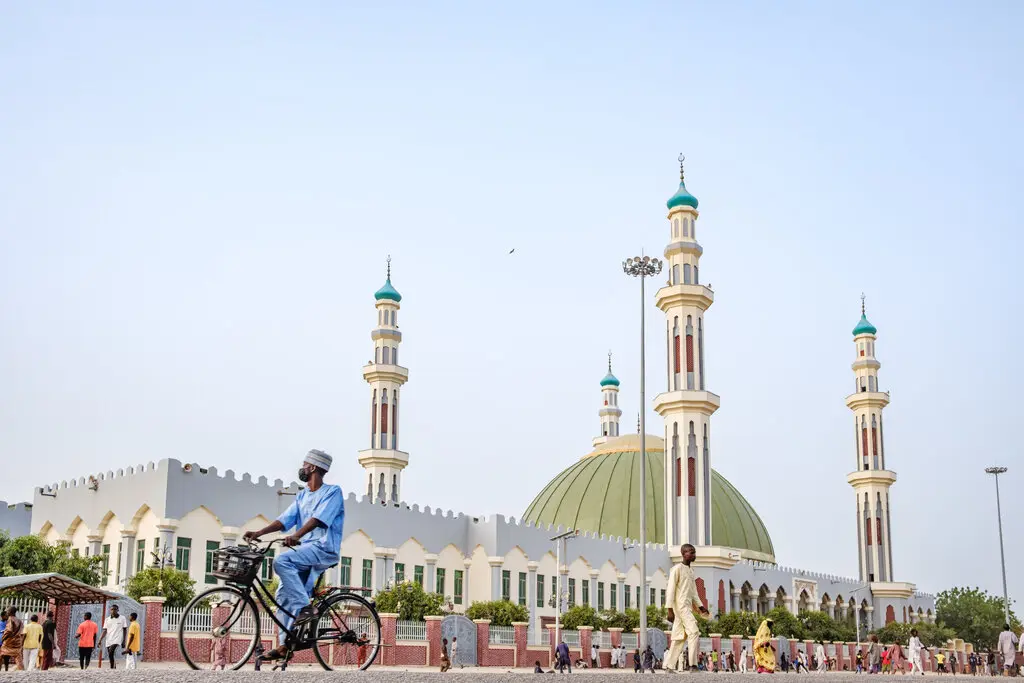
Life goes on in Maiduguri, the capital of Borno State in Nigeria, where 10 years ago the schoolgirls were captured by Boko Haram militants.Credit...Taiwo Aina for The New York Times
She shared that she had dreamed of seeing and holding her parents once more, experiencing their warmth. She was given permission to leave the government institution one day and see her kids in Mbalala, their hometown.
She gave her mother and father hugs.
Ms. Dauda remarked, “She was crying, and I was crying.”
She added that her father had promised her and her husband a place to live if they converted to Christianity. Despite the widespread belief that she and other escapees were the victims of Boko Haram’s indoctrination, she declined, stating that she had freely chosen to become a Muslim and wished to remain such.
She declared, “I was not brainwashed.” “What was explained to me convinced me.”
Her two girls bear the names of her Chibok pals. Seven-year-old Zannira was named after an escaped girl. Sa’adatu, who is five years old, gets his name from a captive.
She mentioned that her husband had recently given their girls a doll.
